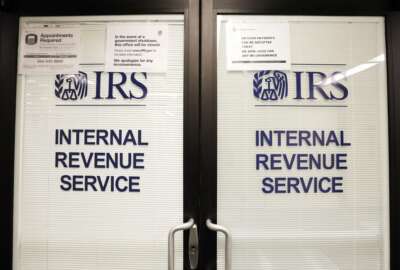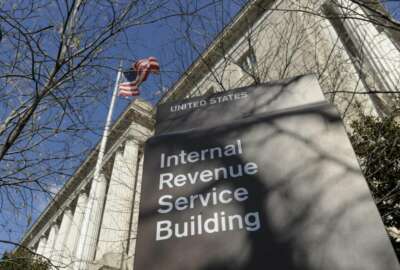
COVID-19 hits your tax refund
Each year, tax professionals urge people who are due refunds to file early and electronically. Now there's a new reason to do just that.
Each year, tax professionals urge people who are due refunds to file early and electronically. Early to make it more difficult for tax scammers to try to hijack your refund, and electronically to speed up the process of transferring money from the Treasury to your bank account.
Now there’s another reason that nobody, but nobody, saw coming: The COVID-19 pandemic that for most of us came out of nowhere in just a matter of weeks has gobsmacked the planet. People, smart people anyhow, no longer hug or shake hands. Most wear masks especially when visiting places like the Mayo Clinic. The virus has shutdown everything from Broadway plays and baseball to your kids’ school and your favorite sit-down eating place. Millions of people who normally commute to the office five days per week are now furloughed, fired or working from home.
That includes many federal operations, among them the Internal Revenue Service which, you well know, processes tax returns — some quicker than others. This reader, like many people, could certainly use his tax refund during these uncertain times. He writes:
“My wife and I submitted our 2019 federal taxes as married filing jointly. We have always mailed our returns and have no problem with the extended time it takes to receive our refund. Our returns were mailed on Feb. 22, 2020. In the past we normally received our refund within four to six weeks and I relied on the IRS website to track the status of our return.
“It’s now been over eight weeks and the IRS site doesn’t indicate it has even received it. So we asked a friend of ours, who is an IRS employee, if there is something we could do or a contact. He simply told us that it make take a ‘looong’ time. Because of COVID-19, most of the employees were sent home to work. However, they were not provided with the equipment (computers, etc.) to do anything. The mail-in returns are just sitting in the office waiting to be processed when the workers return. He described it as being on a paid furlough. Oh yeah, he also said ‘Good luck!’ I’m sure this will not help us receive our stimulus check in a timely manner either. “ — Michael W.
Like so many things, the problem is relatively simple. The solution, not so much.
Bottom line is that IRS employees who are teleworking can and have been processing returns very, very fast. I got mine in a matter of days after it was filed electronically by the smart and saintly woman who does my taxes.
Earlier this week approximately 10,000 IRS employees were asked to return to work to help process tens of millions of pieces of unopened mail. That unopened mail includes payments, actual tax returns, claims of identity theft and or requests for help. The National Treasury Employees Union was concerned about the safety returning employees, including providing them with personal protective equipment.
The Professional Managers Association spoke up on behalf of managers. A source familiar with the situation put it like this, starting with the second part of Michael’s question:
“… stimulus checks are being processed as the news media has widely reported. As far as the IRS employees, the agency has said that this work is being done by employees on telework since it can be done digitally. The paper checks are being printed by the Bureau of the Fiscal Service.
“Paper returns are being stored at IRS facilities and the need to process them is, in part, why the IRS started recalling employees this week. The agency may have time frames on that but it is fair to say that filing season work is behind schedule so that employees could shelter in their homes for their safety,” they said.
On Tuesday, National Treasury Employees Union President Tony Reardon said, “As some IRS employees volunteered to return to 10 IRS campus locations nationwide, they did so anxiously. Among their concerns were how many employees would be there, if the buildings had been cleaned and if extra cleaning and disinfecting would be the standard moving forward. They were concerned about proper distancing from their colleagues, a lack of agency-provided personal protective equipment and performing their work in a safe environment. Following instructions from the IRS, most employees brought their own face coverings they had purchased or made at home.
“Yesterday, the IRS reported to NTEU it had obtained quantities of disposable masks for each location so any employee without a mask was provided one by the agency. According to the IRS, the numbers of returning employees relative to the size of these worksites allows proper physical distancing. The agency says cleaning of common areas is increased along with high-touch points, something employees are watching carefully. There remains a fear among employees that by returning to these worksites their health is at risk along with that of their families, so they are cautious in their return. All those reporting to IRS facilities this week are volunteers stepping up to get critical work done. NTEU is proud to represent them and the thousands of employees who continue to perform the mission of the IRS remotely. As IRS enters this new phase of returning people to the campuses, we are in close contact with employees and with the IRS to identify, raise and solve problems to ensure their return is as safe as possible.”
Nearly Useless Factoid
By Amelia Brust
Hawaiian shirts are thought to have first gained popularity during the Great Depression, when local Japanese women in Hawaii adapted kimono fabric to make men’s shirts. Tourists, mostly wealthy and celebrities, brought them to the continental U.S. where they were made more commercially available. By 1940, aloha shirts were bringing in more than $11 million annually from customers who wanted to emulate the well-off.
Copyright © 2025 Federal News Network. All rights reserved. This website is not intended for users located within the European Economic Area.
Mike Causey is senior correspondent for Federal News Network and writes his daily Federal Report column on federal employees’ pay, benefits and retirement.
Follow @mcauseyWFED
Related Stories





